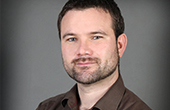Advanced Statistics 1 - Non-Linear Modelling
|
Contents
The living world is not always linear. More precisely, relationships between changes in an external driver and the reaction of a biological system (e.g. a molecule, an organism or a complete ecosystem) are most often not linear. Statistics, however, were classically bound to linear relationships that can be solved “analytically" (that means with a brain, a pen and a paper). Non-linear relationships, however, can not be solved analytically any more, but need an extension to the human brain, the computer, to solve them iteratively.
Another feature in classic linear statistics is that data has to be normally distributed to confirm the underlying assumptions of the least squares fit. To correct for normality, the data is most often transformed to fit these assumptions (e.g. the log-transformation) but this goes hand in hand with a change of the underlying model. This transformation may work to a subset of data we are investigating, but not for all. By using Maximum Likelihood methods, we can overcome these.
Aims of the course
Here, we will discover how to implement a Maximum Likelihood function into R and how to choose the most appropriate distribution that describes our data. Subsequently, we will work through different biological problems that require more than a linear statistic starting with the power-law distributions (e.g. abundance-body mass relationships), hump-shaped curves (e.g. feeding-body-mass relations), the logistic growth function, infection essays, and different functional response models.
Requirements
Basic knowledge in the statistical software R is required, knowledge of linear statistics and theory is of advantage but not required. Please bring your own laptops with a pre-installed current version of R! We will install additional R-packages on-the-fly. Students are expected to participate actively during the course. Plenty of example data for exercises and homework will be prepared.
Lecturers

Lecturer in charge
Dr Björn C. Rall
Email
bjoern.rall@idiv.de
